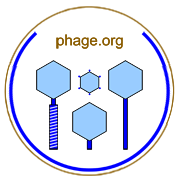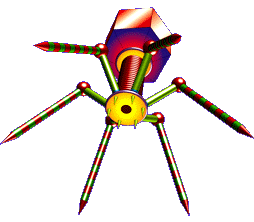

Direct descendant of a temperate phage that is able to successfully infect otherwise homoimmune lysogens but unable to display lysogeny.
The term intemperate is used equivalently to "virulent" to describe temperate phage mutants that are no longer controlled by a homoimmune prophage's repressor protein. These phages therefore are both not controlled by the repressor associated with other phages nor able to repress their own lytic cycles and thus unable to display lysogenic cycles. Intemperate can be a preferable term to virulent owing to the number additional meanings associated with both "virulent" and "virulence". See, for example, virulent phage as well as virulent mutant.
From the glossary of Hershey (1971), p. 777), this is a definition of "virulent": "A virulent or intemperate phage species is one unable to lysogenize its host. Virulent mutants of λ are able to grow in immune cells as a result of mutational loss of ability to bind repressor."
From the glossary of Hershey (1971), p. 773, note also this definition of "clear" (as in, "clear" plaque): "Lambda and other temperate phages form plaques that are turbid owing to growth of cells surviving the infection. Mutants forming clear plaques (clear mutants) establish immunity loss efficiently and permit fewer cells to survive."
For more on this topic, see Wikipedia, Google, and PubMed. Contact web master. Return to terms.